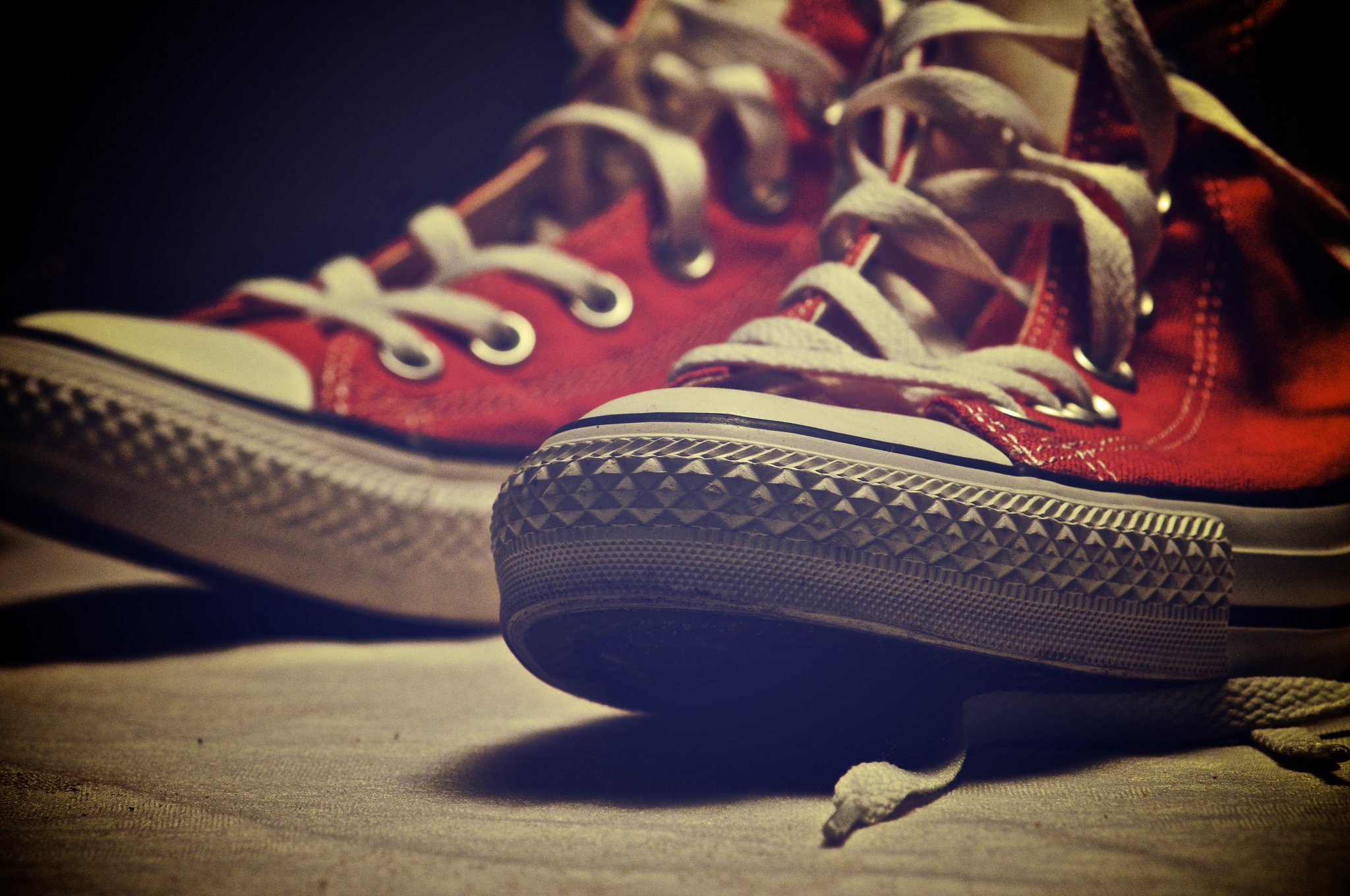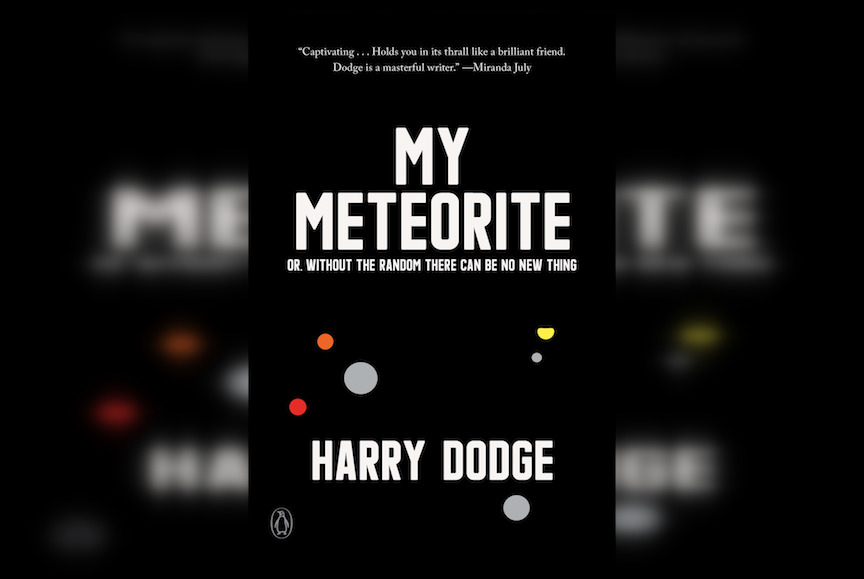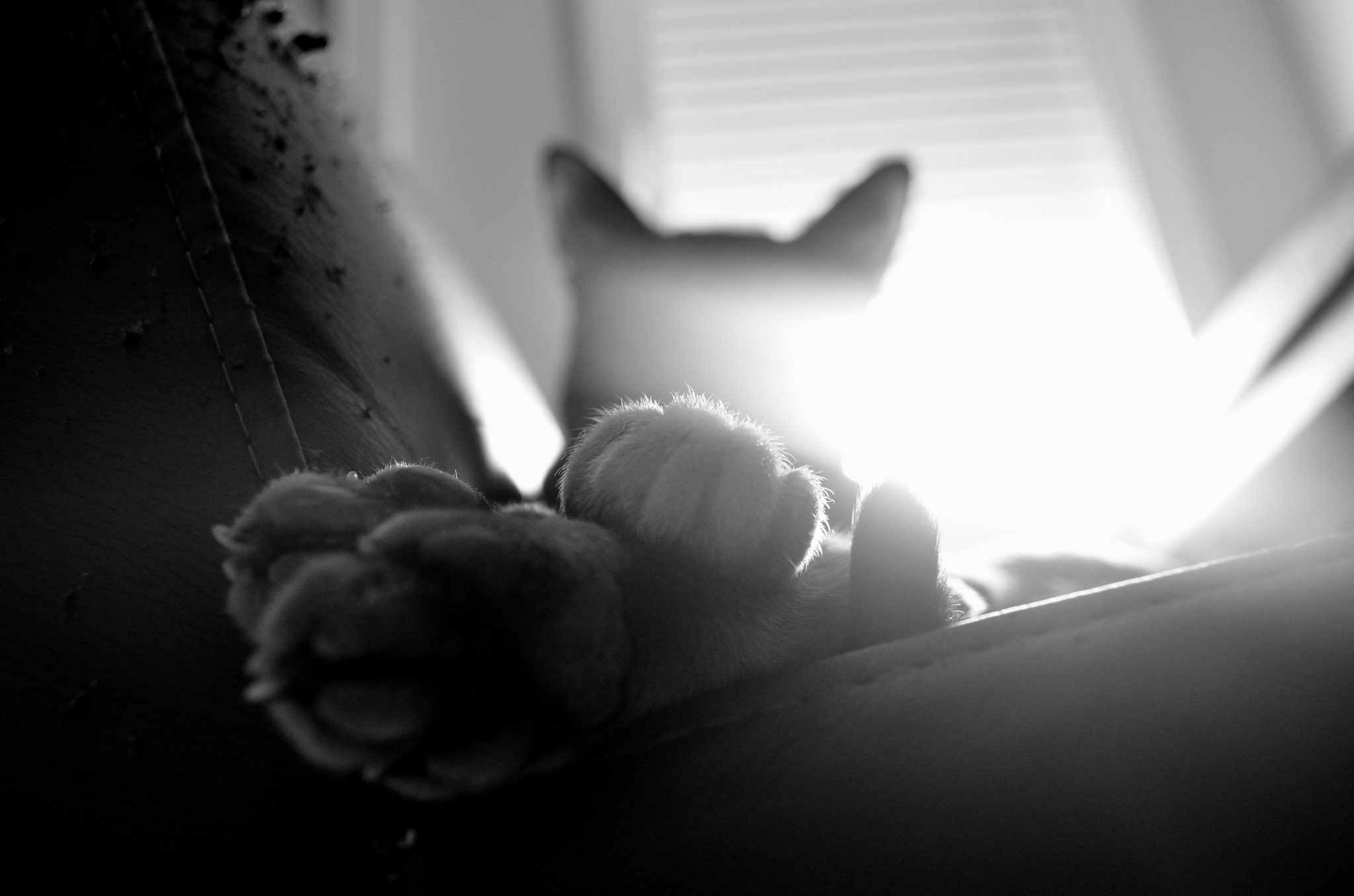I sat cross-legged on the hardwood floor, in a circle of adult women: the group of lawyers, teachers, and industry professionals who were members of the Los Angeles Lesbian Book Club. Our bodies fussed. They protested, yearned for the familiar sag of the couch, or the expensive office chairs we convinced the company to buy after a carefully crafted memo on the uptick in productivity an ergonomic chair can provide. We massaged our calves, tried to ease the discomfort of being adult women on an unforgiving floor: a tight hip from CrossFit, last year’s slipped disc that yoga won’t relieve, that pain deep inside the knee that can be neither identified nor forgotten.
The conversation lulled and someone intervened to ask—“Do you remember the first time you saw a lesbian?”—a question inspired by the novel we had discussed that evening. Half-listening to the others squeal about Christian summer camp crushes and speculate about unmarried librarian aunts, I grabbed my phone, opened Facebook to Ash’s profile, and passed it to the right, knowing that social media could tell the story better than me. I shifted my weight to the left side of my body and my right foot tingled awake, blood rushing to flesh.
The Pilates blonde—a regular who had been coming to book club for years—looked at the photograph on my phone and casually shrugged: “I know the type.” A breeze blew hot through the unhinged summer windows, but no thighs stuck or sweat. The arid Los Angeles night preserved at least a bit of our dignity as we shifted and rubbed and sipped rosé like women in their thirties are meant to do on any given summer night. The wine started to flush everyone in the room, and the conversation increased in volume. Pilates passed my phone to her right and the next woman screeched, “OH GOD!” My cat ran off to hide under the bed, and I wished I could join her.
“See, that’s exactly what I was afraid of: BULL DAGGERS!” Katherine, an impeccably styled forty-something producer, kicked off her kitten heels. “I thought this was what all lesbians became. This person is the reason it took me until thirty to come out. I was afraid of becoming this person.” She inhaled sharply. “Ashley.” She exhaled the name with disgust, as if exorcising herself of a demon that had taunted her since adolescence. The short hair, bare face, bound chest, the scowl. Katherine could have never become Ash; she didn’t have it in her.
Women like Ash are strong enough to survive in the country, in towns where everyone is either fucked up on drugs or fucked up on Jesus, and either way they’re crazy. Faced with the dangers that lurk around small town corners, Ash never cowered. I, on the other hand, cowered when necessary. A decade before I found myself under the illusion of urban safety—surrounded by lawyers and film producers in a LA lesbian book club—I was back in my hometown, on a summer vacation visit after my first year of college. My two high school friends and I decided to put our dorm room black market fake IDs to use and drink in the hillbilly watering hole off the side of the same highway we had driven year in and year out, to Walmart and band practice, to parties out in the strip mines and back home each night. It was called the Good Times, and I was sure it would be. I bet the jukebox would be rocking Hank Williams. I bet the bartender would offer us a hit off her spliff and say she don’t care who we sleep with, long as we tip her. I bet we’d get drunk and do the Watermelon Crawl with somebody’s granddad.
Mikey idled his busted Chevy Cavalier into the gravel parking lot and I pulled my shamrock green Yankees cap down into my sightline. I wore Chuck Taylors, sagging denim and an Ani DiFranco t-shirt that wouldn’t blow my cover because no one in these parts listened to anything but contemporary country or metal—but never both—and they would have no idea who Ani DiFranco was, much less that she was bisexual. I was almost shaking with anxiety, but I blamed it on my fake ID, not the fact that I felt more vulnerable than I had in a very long time. This place was my birthright, and I wasn’t going to keep out because I was nineteen, or because I was queer.
The Good Times didn’t live up to its name. The jukebox played the same Lil Jon song, “Get Low,” that had been driving me up the wall on the radio for what felt like a solid year, and the bartender—still wearing the same shade of blue eye shadow that was popular the year she graduated high school—didn’t offer us shit. As soon as she heard the lisp thick on Mikey’s lips and saw the easy way my shoulder pushed into Julie’s, she made it clear she didn’t want to serve us, splashing our pitcher of Killian’s all over the bar and walking away with her cash without offering to wipe it up. She wasn’t running a queer bar, and she intended for us to know it.
We took our pitcher and an ashtray to a corner table. We had made a mistake coming here, but we already paid for the beer and were broke enough to stay and get our money’s worth. Scanning the patrons from under the safety of my baseball cap, I wondered if I would see anyone from high school, maybe someone sympathetic, a friend from before I came out who might step in if something really fucked up happened. I recognized no one. Two fall down drunk girls in flip-flops, daisy dukes, and spaghetti strap tops commandeered the juke box, playing all the same shitty pop songs from the radio, and danced with each other, heads straining toward the opposite corner, trying to catch the attention of the two roughnecks smoking cigarettes and playing video poker on the other side of the bar. One kept shouting “FUCK!” every time he lost, so the bar sounded like a call and response of Lil Jon screaming “YEAH!” and a drunk in a dirty white t-shirt and shit kicker boots hollering back, “FUCK!”
Failing to pull the boys away from their blackjack screens, the girls scanned the rest of the bar, their eyes landing on Julie and I: the two baseball caps in the back corner. Sure, we looked a little short, skinny. But we were young boys with cute faces. Like movie boys. Maybe from out of town, docked barge workers off the boat for the evening, working our first jobs after graduating high school. Mikey drew hard on his cigarette: “Fuck. Those two skanks are coming over here.” Julie turned around in her chair to look, only encouraging them. I sealed my mouth shut, nodded along to the music, pretending to keep my cool.
“Hey, what’s up?”
“Got a smoke.”
Mikey tapped a cigarette out of the pack and lit it for the girl. She looked straight at me.
“What’s wrong with him?” she asked. Then she grabbed the bill of my ball cap: “Don’t you got any manners?”
I was startled by her hands on me, but recognized the odds we were about to get into a fight were high, so I smiled sweet and looked up at her, but said nothing. She smelled like vodka, but I caught a hint of last night’s application of cucumber melon body lotion.
“This one’s rude too,” her friend said, sitting down on Julie’s lap. Julie blushed red and reached around the girl for the pitcher, taking the last few gulps each of us wanted.
“Seriously, what’s wrong with you guys? I can see he don’t like girls,” nodding to Mikey, his black painted fingernails and dog collar a dead giveaway, “but what’s wrong with y’all?”
I couldn’t avoid it any longer: “Nothing, man, just trying to mind our own business.”
The drunk girl jumped up off Julie’s lap and her friend started laughing hysterically. “You wanted to fuck that dyke! They’re fucking dykes and you wanted to fuck them!”
My girl voice gave it away.
“Don’t y’all got your own bars?”
Mikey pulled out his keys and we bee-lined for the door. The girls followed us, hurling insults but thankfully nothing else. Neither Julie nor I said a word back to them, a silent acknowledgment between us to keep our mouths shut. This was the difference between Ash and I, and yet it was the reason we both made it out alive. Ash didn’t take shit from no one. She would have smashed her beer mug across the girl’s face before the word “dyke” had a chance to pass her lips. She would have been torn apart in the Good Times, while Lil Jon blared out of the jukebox on a hot summer night off Route 7.
As far I know, Ash was smart enough to keep her ass out of the Good Times, and I learned not to fight a battle I couldn’t win. In our own ways, we did what was necessary to survive. But there I was, re-learning when to speak and when to hold my tongue, and I pulled Ash right into the middle of it, where she had no chance to knock the rosé out of Katherine’s hand and give her the scare she deserved.
In an attempt to diffuse the internalized homophobia that filled the room like a noxious gas, another book club member, Sarah, grabbed my phone from Katherine and exclaimed, “Fierce!” I hadn’t seen Ash in person since I escaped our no stoplight hometown decades ago, but I too felt her ferocity. Ash frequently appeared in my Facebook newsfeed, showing off tattoos she’d completed in her North Florida tattoo studio: roses, anchors, lovers’ names in intricate script, artistic renderings of the crucifixion. I imagined another breed of redneck—the Floridian—showing off the brand new flower band etched into her ankle, its vines creeping down onto a tanned foot, the pale flesh of a flip-flop tan line peeking out when she twists her ankle, showing her friends the pain she withstood on the other side of Ash’s tattoo needle. When her friends ask about her artist, she’d blush: “She’s a total lesbian. A real manly one. But she didn’t, like, hit on me or anything.”
Sarah passed back my phone, and I lingered for a bit on Ash’s face, feeling like I exposed her without giving her a chance to defend herself. I could have predicted Katherine’s disgust. You learn a lot about a person after years in the same monthly book club. “That’s an amazing portrait too,” Sarah declared, still trying to drown out Katherine’s rejection of Ash. Although Apple’s billboard advertising implored us to think otherwise, calling the iPhone photo a “portrait” is an overstatement. It was a Facebook profile photograph. But it was a good one.
The photograph was defiant. A cigarette tucked naturally between her tattooed fingers and a newsboy ascot atop her freckled head, shading everything but her freckled lips. Ash stared straight into the camera, daring the viewer to say anything to her about smoking indoors. Ash existed a world apart from the wealthy, west side, lesbian book club, crouched on the floor and perched on chairs in my Venice Beach apartment. She leered at us. She was a boy on a street corner, a little drunk, a little high, daring someone to fuck with him, asking for a fight. She was as serious as the crucifix tattoo, engulfed in flames, peeking out above the neckline of her black t-shirt, roach clips and a military dog tag hanging below it, conceding that even though she’s the baddest butch on the block, she still has a soft spot for the guy in the sky.
Ash moved to our town from Georgia when I was 12 and she was 13, from somewhere probably just as backwoods as New Haven, West Virginia, but a place that sounded exotic to me because it was somewhere else. I had cousins in Augusta, who I found infinitely interesting because they were Catholic. My uncle converted to appease his wife’s family, and I wanted to attend their church when we visited, but was told I didn’t know the proper way to worship, so we were going to spend the morning watching cartoons instead. This trip to Augusta recalled buildings taller than two stories from the car window. I laid down in the back seat, kicking my sister out of the way to get a skyward view that would make me pleasantly dizzy: sky, sky, sky and then… bam! The top story of a building would hit my gaze through the window as our car zipped past. When I wasn’t playing this game, I was on the lookout for occult shops. There were probably no occult shops in Augusta, Georgia in the early 90s, but I saw one while stopped at a traffic light in Athens, Ohio—the college town nearest to where I was raised, where we sometimes drove to the movie theater—and I was henceforth convinced that all towns had one. Being from Georgia, Ash must have been more interesting than me, so I befriended her. I was always on the lookout for anyone who came from anywhere else.
The first summer that she and her mother moved in with her aunt down the street, everyone was on alert that there was a new kid, and so I rode my bike back and forth past her house, waiting to be seen. Noticing that she practiced her dribbles and finger spins with the discipline of a master cellist, I finally got up the courage to invite her over to play basketball. My driveway had a hoop and hers did not. My dad installed it, desperately wishing for a son, a desire he let my sister and I know each time we got too “girl” on him during our introductions to hunting, fishing, and athletics. Before Ash, I wanted nothing to do with basketball. Like some ditzy cliché, I would complain that looking up in the air for the ball made me nauseous. Now, my dad would come outside while we were playing 1-on-1, coaching Ash from the carport. He knew talent when he saw it. She still had long, fire-orange hair, wild with frizzy waves, yet to be shorn into the boy’s cut she would sport as a teenage butch, a small black comb pulled from her back pocket and used to tame the short red mop atop her handsome face every time she got bored or nervous.
Ash wasn’t just a natural athlete. She was also mean. After I proved an insufficient opponent, she dribbled my basketball down the street and started running me off my own personal “court,” inviting neighborhood boys over to provide a challenge. When I complained to my dad, he just shrugged: “You never really like basketball anyway.” So I would watch Ash take on the neighborhood boys and beat them. Years later, when our family moved to a bigger house with a detached garage a few blocks down, my dad installed a pool table. Ash ran the joint. Months prior to our move, she had bet a drunk guy at the real pool hall fifteen minutes down the highway for his professional pool stick and she won. She proudly carried that stick to my house in a leather case swung over her shoulder, and she treated my dad’s garage like her own personal pool hall. To get a chance to play, you had to beat her. And no one ever beat her.
You might have seen Ash walking on the side of the highway, sucking down a Marlboro Red in full view of the bored town cops, who didn’t bother with ticketing her for underage smoking. Or walking hand in hand with her girlfriend Sasha, a twenty-something with a buzzed head who could, and often would, buy beer for middle schoolers. Ash would escort her into work at the Dollar General and walk out with free candy and bottles of Mountain Dew. Looking like two skinny boys in love, it’s a miracle no drunk in a pick-up ever swerved to hit them, walking as they did deep into the evening, sneakers following the reflective white paint of the highway between the piss-ant town, and the residential neighborhood where we all lived. Sasha’s parents didn’t work, but collected social security disability checks, bringing down the class-level of an otherwise relatively well-kept subdivision. Ash’s mother was mentally handicapped and overly protective. Some evenings, you might hear her screaming for Ash to come in past curfew, or even going door-to-door, searching for her daughter who was supposed to be home by 9pm. The next morning on the bus, kids would laugh at Ash, asking if her mother spanked her ass for breaking curfew. Ash never seemed humiliated by this, asking her tormenters if they wanted their asses spanked? I watched it all, and could never fathom her ability to move on, unbothered, without concern for her reputation. Once, I watched from my porch as Ash and Sasha turned off the highway across from my house, onto a path carved into the woods, beaten down by boys on ATVs. I asked her if they went back there to smoke pot, and warned that they better be careful: it was deer season, and every year we heard tales of kids getting shot, their rustling steps being mistaken for that of a doe. Ash told me that she and Sasha fucked in those woods by my house. They couldn’t find any privacy at home.
In a book that would, ironically, take me all the way to California to examine the life I knew in rural West Virginia, Jack Halberstam writes, “The danger of small towns as Willa Cather described it… emerges out of a suffocating sense of proximity: ‘lives roll along so close to another,’ she wrote in Lucy Gayheart, ‘loves and hates beat about, their wings almost touching.’ This beautiful, but scary image of rural life as a space all-too-easily violated depends absolutely on an opposite image—the image of rural life as wide open and free ranging, as ‘big sky’ and open plains. Cather captures perfectly the contradiction of rural life as the contrast between wide-open spaces and sparse population, on the one hand, and small-town claustrophobia and lack of privacy, on the other.”
The possibility of a desperate, teenage fuck in the woods, of being mistaken for a deer by a hunter trying to feed his kids, horrified by what life he has taken, and of being watched by the teenage girl down the street, secretly wishing to be part of what you’re about to do in the dirt—these possibilities hung in a precarious balance, rendering both Ash and I equal parts excited and suffocated.
In the summer before junior year of high school, I took a three-hour trip to Cleveland to do what Ash had been doing in the woods by my house. I wasn’t actually aware that I would have lesbian sex for the first time when I asked—A/S/L?—of the self-proclaimed “dyke” I was chatting with on ICQ, an early online messaging service. I just wanted to know a lesbian. To have a lesbian friend. To me, who had been fascinated with the gay reality TV stars I had been watching for years on MTV’s The Real World, having a lesbian friend was the epitome of sophistication. Ash, of course, was not what I was looking for. She may have been the new kid from elsewhere when I was twelve, but by the time I was sixteen, there was nothing more small town to me than our very own country dyke. Like Katherine—the blonde lawyer with the tiny dog that peeked over the edge of her oversized purse, crouched uncomfortably in my Venice apartment—had said, Ash was a butch, the wrong kind of lesbian. She was not to be envied, but to be feared. She was of New Haven, West Virginia, and I wanted to be of the world.
My mother wasn’t naïve, so she must have seen through my story that I wanted to stay with a friend from summer camp, which I hadn’t attended for two prior summers. But she left me, no questions, with the teenage punk rocker who picked me up from the McDonald’s parking lot on Clark Street in the city’s historic German core. Beth had bleached blonde hair, still somewhat spiked on top from yesterday’s faux hawk, but fuzzy and soft around the temples where I would touch her a couple of hours later. Her homemade Sleater-Kinney tank was tucked into baggy jeans, and pulled together with a studded belt that I had never seen on the generic racks of Hot Topic. I was the cheerleader swooning over the bad boy, the one boy off limits to me. Literally, I was a high school cheerleader, which made me an unlikely candidate for queer desire, or at least its adolescent realization. Beth was off limits in more ways than I had yet to fully comprehend.
We decided in advance that I should bring photos of my life to share with her on this visit. This was long before cell phone photography, or even scanners in home offices, at least for working-class kids in West Virginia and Ohio. Immediately after I dropped my duffle bag onto a clear patch of carpet in her trash heap of a room, she handed me a shoebox full of photos of her band playing basement shows and high school parties. The stack of photos I brought featured drunken upperclassmen from the cheerleading squad, kitchen tables surrounded by stringy-haired girls smoking cigarettes and playing card games, and boys snorting pills off their girlfriends’ teenaged bloated bellies. I had no punk band to promote, so I had to carefully curate a selection that would make me look edgy. Sitting on the floor, our backs pushed into her twin-sized bedframe, it was suddenly obvious to me why I was there, and I kissed her. We didn’t stop kissing for two weeks.
We spent those weeks without air conditioning, sweaty fucking for hours a day in Beth’s mom’s trailer. We left only to walk to McDonald’s, or go on joy rides in her gay best friend’s bright blue Ford Focus. Once, we walked two miles to Petco to buy food for her collection of creepy pets: rats, tarantulas, a ball python, some kind of giant cockroach. I would have stayed for the rest of my life, but school was starting in a month and I had to return to West Virginia, where everything suddenly paled in comparison to the excitement of Cleveland. In Cleveland, you could walk to a mall. It took less than an hour to get to a movie theater. There was more than one shitty diner. I burnt CDs with the songs we listened to while driving aimlessly through Cleveland suburbs: Lords of Acid, Daft Punk, Trina, and Missy Elliot.
In those final weeks of summer, still closeted at home, I began to see Ash again how I had once seen her, before the impulse to achieve high school popularity blocked her from my line of vision. When I left, Ash was country. A chain-smoking, Carhartt-wearing, snuff rubbing diesel dyke with a shitty haircut. When I returned, I was nothing but scared, and Ash was brave.
Dolly Parton recounts the first time she laid eyes on the town whore: “All country girls have an idea of what glamour is, and a lot of them get that through magazines or movies. But we didn’t get to go to the movies and we lived way back, so my look was inspired by the town tramp. I thought she was absolutely beautiful because she looked like a movie star to me, because she had those piles of bleached hair, red lipstick, nails and cheeks and high heel shoes. And people used to think it was a joke. I would say how beautiful she was, and everybody would say she is just trash. And I thought that is what I am going to grow up to be— trash.” When I returned home from Cleveland, feeling like I had finally lived something worth living, I began to look at Ash the way Dolly looked at the town whore. By the time we graduated high school, she would be something of a hero to me.
My dad coached girl’s summer league softball, which meant that he had a lot of contact with the town dyke. He made sure I knew that, unlike me, Ash could become a star pitcher. Dad ranted after practices, “If it weren’t for her trash mouth” and “if it weren’t for her trash attitude,” her “absolute inability to accept authority”… Ash could really be something. She could win a scholarship to a good college, or at least make All-State. My father lived for his ability to turn whining, pathetic girls into “ball players.” He didn’t like to think of us as girls at all. We were his ball players, and we would play ball to the best of our abilities or we would get the hell out off his field. With Ash, he had a head start: she was already a great ball player. There was something other than whining and tears that my father needed to stamp out of her. The majority of pre-teen girls join softball to get ice cream after the games. They sit down in the outfield, gossip, eat Laffy Taffy, have team spirit, and draw their boyfriends’ names in the dirt.
Ash was not a girl. Ash was a ball player. And she didn’t need my dad to foster her talent. But he persisted, rode her ass.
“Move your butt! Maybe if you stopped smoking those cancer sticks you could actually run!”
“Are you with us? Where’s your brain?”
Ash was staring off into space, probably high. Probably thinking of tits.
She pitched well, but she did smoke, she did drink, and she did do drugs. One practice in the July heat, dust kicked from cleat to lungs, making everyone miserable. Ash collapsed at the plate mid-practice. This was not the kind of collapse that girls did in the outfield. Rumor had it that you could fake unconsciousness once a year to get out of practice early, the coaches none the wiser. Ash was out cold, white-faced, crumpled into a pile of oversized boys’ workout clothing, her army cap fallen into the dirt, as she poured cool beads of sweat into the mound. The coaches ran toward her with water, and when she came to, she puked a bit onto the field, wiping it off, swishing her mouth and spitting dramatically, her new vulnerability barely breaking through her old, tough demeanor. As the assistant coach stepped back to give her room, his hand outstretched to her broad back, my dad spat a disgusted “druggie” toward the direction of the puke-splashed ground, and walked back toward the dugout.
I didn’t yet know that my father was homophobic. There was no reason to consider it, since he was still blissfully unaware that his own daughter was fantasizing about the brunette, ultra-Christian upperclassman on the cheerleading squad. But I don’t think his annoyance with Ash was motivated by her preference for women. He hated that she didn’t take her athleticism more seriously, kicking the smoking habit to get a softball scholarship. He had a baseball scholarship to a small state school, studied history and pitched, before his shoulder failed him. Ash betrayed my father like his shoulder, not strong enough, not sturdy enough, and he despised her for it. There was no point in being disappointed in me. I did my best, but my best was nowhere near as good as Ash’s, her smoking, drinking, and drugs be damned.
Then one day she punched him.
He got in her face, his eyes wide in a way I never thought I would see in public, beyond the protective barriers of fence, then yard, then vinyl siding, insulation, drywall, the paint of our house. I was humiliated as he screamed, his face close to hers, so close that she could likely see where the white of his mustache went yellow from sweet tea stains. Everyone must know, I thought, that he screamed at me this way. It was like he was sharing my secret with the whole team. Ash stumbled back, braced herself, and threw her fist into his face, bloodying his mustache, and walked off the field.
On the floor of my Venice apartment, I showed Ash’s photo to the well-to-do west side, white lady lesbian book club. I listen as the women talk about how they feared gay stereotypes. They say that they knew they weren’t like Ash, so how could they be gay?
After the summer that I got fucked by a punk rocker in Cleveland and Ash punched my dad in the face, I ran straight at those stereotypes. I watched Ash and tried my best to put on a butch swagger. I watched her walk down the highway, I watched her draw in art class, better than anyone else at the school. I watched her smoke like a professional, I watched her shoot pool. And I thought of the day that she punched my father. She didn’t yet have LOVE tattooed across the knuckles of her right hand.
I clicked on her Facebook portrait, looking just as mean. Hungry dog mean. Grew up gay in the country mean. I messaged her, after years of not speaking, and asked, “Do you remember hitting my dad?”
She said she doesn’t. She didn’t think she hit him. Maybe she did? But she remembered that I wanted to.
Photo Credit: Steven Guzzardi, via Creative Commons




